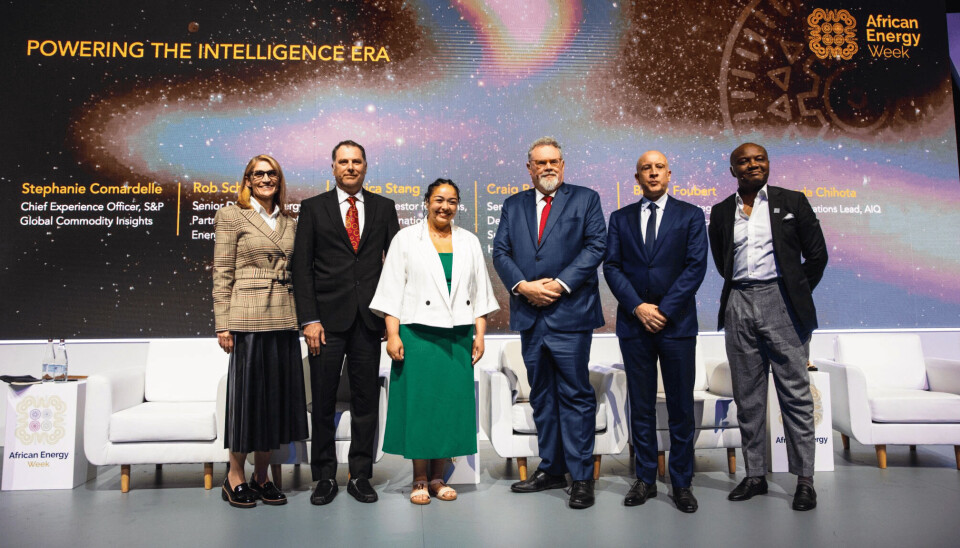Copyright : Re-publication of this article is authorised only in the following circumstances; the writer and Africa Legal are both recognised as the author and the website address www.africa-legal.com and original article link are back linked. Re-publication without both must be preauthorised by contacting editor@africa-legal.com
Africa-wide AI adoption and regulatory reform needed to accelerate energy development, say tech companies

This week in Cape Town, African Energy Week gathered energy leaders, legal experts, and global investors to address the future of Africa’s energy industry. On Thursday a ‘Powering the Intelligence Era’ panel addressed the unprecedented speed at which technology is impacting and reshaping the energy sector
Regulations written decades ago do not support the data-driven transformation that is now needed in the oil and gas sector and wider energy space, and a patchwork of legal frameworks and regulations across different countries hampers the adoption of technologies like cloud computing and AI, said a panel of tech experts yesterday during the African Energy Week (AEW): Invest in African Energies 2025 conference.
“We must develop modern legal frameworks and build the right talent with appropriate training to reuse intelligence technologies across the continent,” said Benoit Foubert during the ‘Powering the Intelligence Era’ panel session on Thursday.
Foubert was joined onstage by Stephanie Comardelle of S&P Global Commodity Insights; Rob Schapiro of Microsoft Energy and Resource; Jessica Stang of Calvert International AG; Craig Bebee of Halliburton; and Tawanda Chihota of AIQ.
The panel warned that the rapid acceleration of technological change in the oil and gas space risks leaving companies operating in Africa behind, or becoming obsolete, if they and the regulatory landscape don’t adapt and evolve.
The flipside, noted Foubert, the Vice President of Digital & Integration for Europe and Africa at Texas-headquartered energy technologies company SLB, is that emerging markets like Uganda and Namibia where the oil and gas industries are nascent, may have an opportunity to ‘leapfrog’ legacy technology challenges altogether.
Such comments echo fintech innovations, including the widespread use of mobile money technology sprouting from East Africa, which has driven unprecedented financial inclusion by ‘leapfrogging’ traditional infrastructure and systems.
AI can have a role to play in making energy projects in Africa and around the world more investment friendly, noted Stang, the Head of Investor Relations at Calvert International AG. “Loss of energy translates directly to lost revenue. AI drives smarter investments and de-risks projects, enhancing returns in this complex sector,” she explains, adding that it will require closer collaboration between government, private sector and universities to nurture innovation in Africa’s AI and energy landscape.
Chihota, Communications Lead at AIQ, urged industry players to prioritise AI integration and infrastructure as soon as possible. “We have identified key pain points where AI delivers significant value, driving impact from upstream operations through to strategic boardroom decisions,” he said, emphasising that AI is fundamental for Africa’s energy system and economy, not just a “nice-to-have.”
Indeed, AI is the new lubricant powering the entire energy value chain, argued Beebee, the Senior Business Development Manager - Sub Sahara Africa - North for Halliburton. “Ignore AI at your peril or embrace it safely and efficiently.”
Meanwhile, Rob Schapiro, Senior Director of Partnerships at Microsoft Energy and Resources, said AI would have many practical applications in Africa where permitting for energy projects can take up to 12 years. “Using generative AI to analyze historical data and automate report writing can reduce approval times by 40%, saving millions and accelerating energy development.”
Schapiro believes that AI-driven resiliency, predictive maintenance and grid optimization will become essential capabilities for energy infrastructure worldwide.
This story is part of Africa Legal's coverage of African Energy Week (AEW) 2025. You can read more from various AEW speakers, events, and news:
IEF keen to grow Africa’s voice in global energy discussions
AEW 2025 ignited with dynamic pre-conference workshops and forums
Fostering actionable steps for greater indigenous participation in Africa’s energy industry
Anticipation grows for Olaniwun Ajayi-hosted Energy Leadership Forum
Or view our full suite of AEW 2025 coverage here
